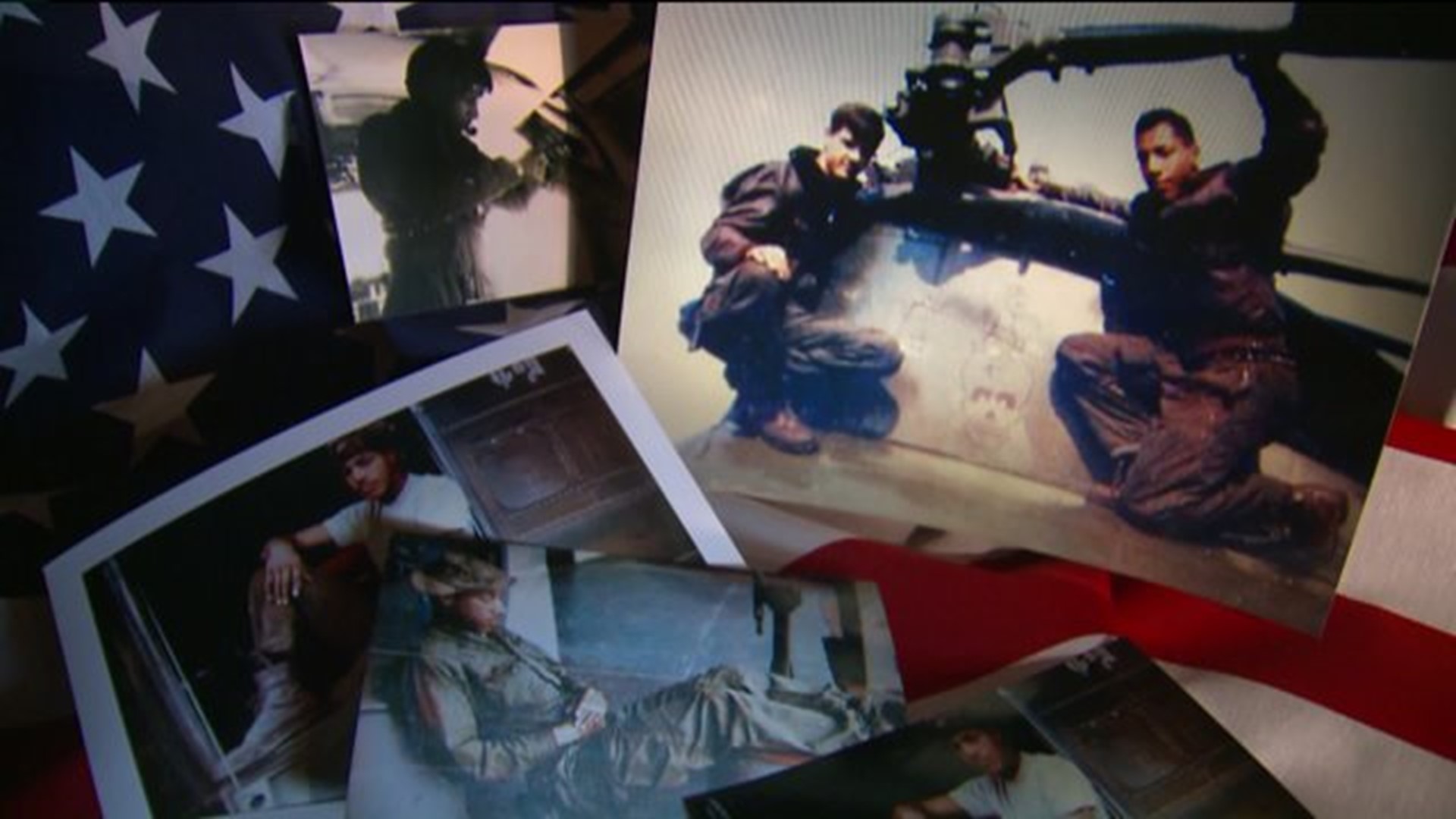NEW BRITAIN -- Decades later and the earsplitting sounds of war can’t be suppressed. The heavy images are still too much to bear and the thought of even talking about it has always evoked a lot of pain for Vietnam veteran Ted Graziani.
“I prayed a lot and this is going to sound a little bit bizarre, but I think I sold my soul.” Graziani said.
Now, Graziani is bravely playing back all the scenes of his painful past. “I had a brother-in-law, years later tell me, I was the stupid one to go over there,” he recalled.
He’s rewinding his memory, with the future in mind for the Veterans History Project. Eileen Hurst with Central Connecticut State University is documenting war stories so they can be preserved online forever by the Library of Congress.
Hurst has a special interest in Vietnam because tense, anti-war sentiment at the time kept many of those who served from telling their stories.
“All the Vietnam veterans came home. They weren’t allowed to celebrate what they did and the service they gave. So, I think it’s terrible for those guys,” said Hurst.
“I remember first night, this 20 year old, just returning. My mom walks in the room. I had this blanket here. She moved it up to cover me. I’m sorry for what I put her through,” said Graziani.
With hundreds of war accounts already logged, Hurst said Graziani’s account is a common story. Many veterans couldn’t help their families cope because they too had trouble, like Sam Beamon. “They can teach you just about anything they want to. They taught us how to be a mechanic. They taught us how to be a crew chief. They taught us how to do our job. The only thing they never taught us was, how do you grieve,” said Beamon.
Beamon, just 19 when he went to Vietnam said it was too much, too soon.
“War is the dirtiest, ugliest, nastiest thing you can do to another individual. The things you see, the things you do, you don’t want repeated,” said Beamon.
The problem is, the images do repeat themselves, especially for veterans like Reggie Harrison who served four tours of duty in Vietnam as a B-52 pilot. He can easily recall December 20, 1972, his most devastating day in Vietnam.
On that day, he witnessed his friend’s death, but didn’t tell anyone about it until recently, when he was interviewed for the Veterans History Project. “500 pound bombs went off at the same time and he just vaporized,” said Harrison.
Today, Harrison continues his once-weekly counseling for combat PTSD.
“A lot of us tried drinking to the point we could make it go away. I did that. It doesn’t work,” said Harrison. Now, despite the heartache it brings, Harrison would rather share his story and the reason is simple. “Somebody cares,” said Harrison.
These servicemen say, the Veterans History Project means their sacrifice won’t go unnoticed after all. “It’s not all over for us. Those of us that survived carry this with us every single day,” said Beamon.
“As time goes on, I’m sure the country would like to forget about Vietnam and it will, because we had our 50th. No one cares about the 51st and beyond,” said Graziani.
In addition to the videotaped interviews, other items collected for the Veterans History Project like military documents, journals and photographs are digitized and then put online, not only for the Library of Congress, but on CCSU’s website so you can view them as well.

